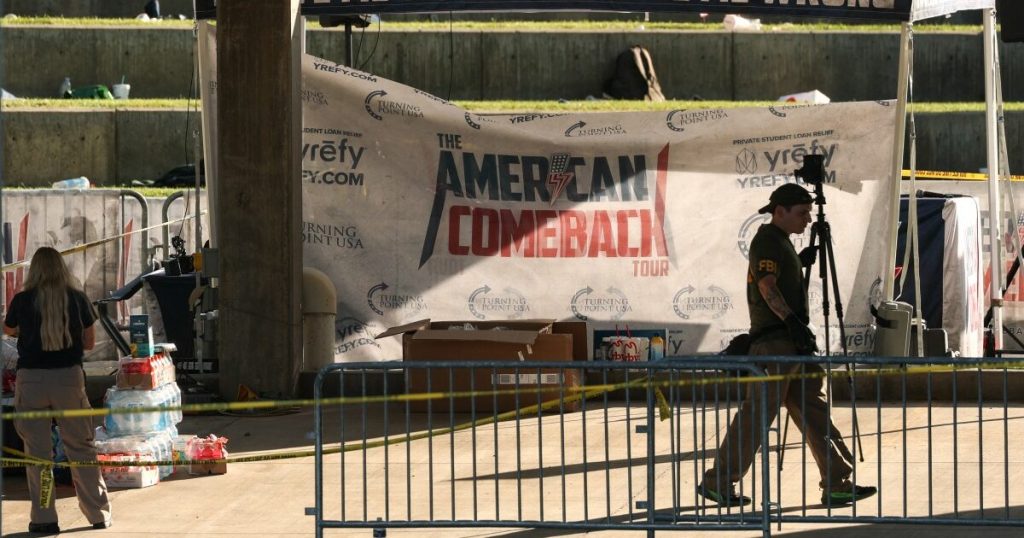The assassination of Charlie Kirk, a prominent figure in the American right-wing youth movement, sent shockwaves across a nation already grappling with heightened political tensions. The 31-year-old, lauded by supporters as instrumental in Donald Trump’s return to the presidency, was shot while addressing a gathering at Utah Valley University. The FBI classified the incident as a “targeted event,” and authorities launched a manhunt for the perpetrator, who fled into the surrounding woodlands after the attack. While the assailant remained at large, investigators secured video footage of the suspect, described as university-aged, and recovered a high-powered bolt-action rifle believed to be the murder weapon. Two individuals initially detained were later released after being cleared of any involvement.
The incident’s political ramifications were immediately apparent. President Trump, bypassing law enforcement, was the first to publicly announce Kirk’s death, subsequently addressing the nation in a video message where he labeled the event a “dark moment for America.” Despite the absence of information regarding the shooter’s identity or motivation, Trump pointed fingers at the “radical left,” accusing their rhetoric of inciting the violence and vowing to hold those responsible accountable. This immediate politicization of the tragedy further exacerbated existing divisions within the country, highlighting the deeply polarized political landscape.
Kirk, shot in the neck during his address, was a divisive figure. He co-founded Turning Point USA in 2012, aiming to promote conservative ideologies among young people. His charismatic personality and adept use of social media platforms like TikTok, Instagram, and YouTube garnered him a substantial following. He championed policies related to anti-immigration, outspoken Christianity, and gun ownership, often utilizing selectively edited clips of his public appearances to bolster his arguments. His influence within conservative circles was undeniable, contributing to his status as a rising star in the Republican party.
The shooting sparked fear and anxiety among students present at the event, underscoring the pervasive unease surrounding political discourse in the country. One student expressed concerns about freely expressing political views in such a charged environment. Utah Governor Spencer Cox, a Republican, termed the incident a “political assassination,” further intensifying the political undertones of the tragedy. Kirk’s supporters hailed him as a “martyr” for conservative principles, solidifying his image as a symbol within the right-wing movement.
This incident wasn’t an isolated act of political violence. Just three months prior, a Democratic lawmaker and her husband were murdered in their home by a Minnesota man. Trump himself survived an assassination attempt during his 2024 election campaign. These events paint a disturbing picture of increasing political extremism and violence within the United States. The killing of Charlie Kirk, a highly visible figure in the conservative movement, further deepens the existing political chasm, raising concerns about the future of political discourse and the potential for further violence.
The aftermath of the shooting saw Vice President JD Vance cancel a planned trip to New York to commemorate the 9/11 attacks, opting instead to travel to Utah to offer condolences to Kirk’s family. The nation mourned the loss of a young political figure, while grappling with the implications of this targeted killing. The incident underscored the fragility of political stability in a deeply divided nation, raising urgent questions about the role of rhetoric, the rise of extremism, and the need for unity in the face of escalating political tensions.














